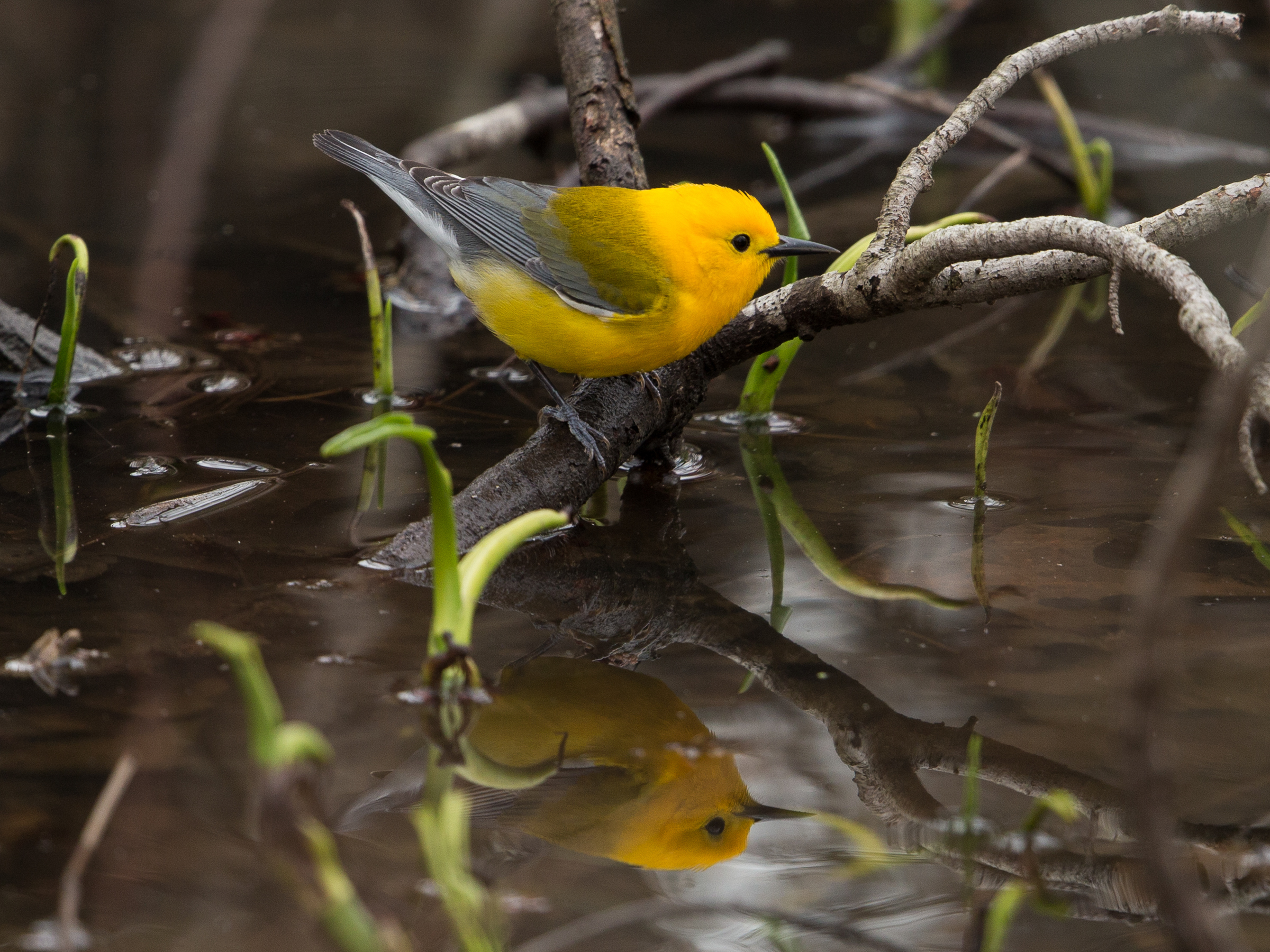By Mary Beth Nevulis, Louisville Audubon Society Board of Directors
Kentucky’s waterways are the lifeblood of our environment, economy, and communities. They nourish our forests, sustain wildlife, and provide drinking water for millions.
But Senate Bill 89 (SB 89) threatens to strip away crucial protections for many of these waters—endangering not just aquatic ecosystems but also the birds and wildlife that call our state home.
What is SB 89 (and what the heck are “navigable waters”)?
SB 89 proposes to redefine “waters of the Commonwealth.” That would limit state-level environmental protection only to those waters already defined as “navigable waters” under the federal Clean Water Act.
So what exactly are “non-navigable waters”? They’re any water source that isn’t deep enough to use for transportation or commerce.
That leaves a lot of unprotected water: groundwater, off-stream ponds, small tributaries, and ephemeral streams (the upper reaches of stream systems, which carry rainwater and snowmelt runoff into Kentucky’s rivers and lakes)—all critical components of our water system.
This deregulation would put Kentucky’s drinking water and flood control systems at great risk.
- For example, the bill restricts how the Kentucky Energy & Environment Cabinet calculates bonds for surface coal mining operations—potentially allowing more pollution discharges from mining activities without long-term accountability.
- An increase in mining pollution dumped into headwater-stream reaches can elevate runoff levels and worsen flooding—already an issue in many parts of our state, as we experienced in 2022 and again just last week.
- Plus, according to the Kentucky Lantern, groundwater is the source of drinking water for more than 1.5 million Kentuckians through 185 public water systems, and for more than 416,000 Kentuckians from wells and springs.
What’s more: If the bill is passed, it also threatens Kentucky’s ecosystems—and the birds and wildlife that inhabit them.
Why SB 89 matters for birds and wildlife
Water is a fundamental part of Kentucky’s rich natural heritage. From the Appalachian streams to the wetlands of western Kentucky, these habitats support a diverse range of bird species and other wildlife.
If SB 89 becomes law, its consequences will ripple across the entire ecosystem.
Loss of wetlands and headwaters: Many of Kentucky’s rivers and streams begin in small headwaters that would no longer be protected under SB 89. These waterways filter pollutants, prevent erosion, and provide critical habitat for fish, amphibians, and aquatic insects—food sources for many bird species.
- Wood Ducks and Great Blue Herons rely on wetlands and slow-moving headwaters for nesting and foraging.
- Prothonotary Warblers, a species of concern in Kentucky, depend on wooded swamps and ephemeral wetlands, which would become vulnerable to pollution and destruction.
Declining water quality: By removing protections for ephemeral streams and groundwater, SB 89 would allow more pollutants to enter Kentucky’s rivers and lakes. This affects not only fish populations but also the birds that depend on clean water for survival.
- Increased mercury and heavy metal contamination from mining operations can poison fish, impacting fish-eating birds like Bald Eagles and Ospreys.
- Algal blooms fueled by excess pollution can reduce oxygen levels in the water, killing fish and aquatic insects that serve as food for birds like Belted Kingfishers and various Sandpiper species.
Increased flooding risks: Wetlands and headwater streams act as natural sponges, absorbing excess rainwater and reducing the severity of floods. Without them, Kentucky faces heightened flood risks—putting both human communities and wildlife habitats in danger.
- Ground-nesting birds like Eastern Meadowlarks and Bobolinks could lose their nesting grounds to more frequent flooding.
- Habitat destruction from floods could displace species like Barred Owls that depend on stable, forested floodplains.
Economic and recreational impacts: Our economy benefits significantly from outdoor recreation, including birding, hunting, and fishing. The degradation of water quality and habitat loss could devastate this sector by making our state a less desirable place for outdoor recreation and driving away tourists.
- Wildlife viewing contributes $1.3 billion annually to Kentucky’s economy.
- Fishing and boating, reliant on clean water, generate over $3 billion and support thousands of jobs.
What can you do?
The fight isn’t over. SB 89 has passed the Senate but still needs approval in the House. There’s still time to take action:
- Call the Legislative Message Line at 1-800-372-7181 and urge House members to vote NO on SB 89.
- Spread the word to friends, family, and fellow conservationists about the dangers of this bill.
- Support organizations like the Kentucky Waterways Alliance and the Kentucky Resources Council that are advocating for clean water protections.
Bottom line
SB 89 is a dangerous rollback of water protections that puts Kentucky’s environment, wildlife, and communities at risk.
Our rivers, wetlands, and headwater streams don’t just belong to industries looking to pollute without consequence—they belong to all Kentuckians, from the Belted Kingfisher diving for fish to the families enjoying a day at the lake.
Kentucky’s waters must remain clean, healthy, and protected—not just for us, but for the countless birds and wildlife that depend on them.
Let’s stand together and stop SB 89 before it’s too late.

No responses yet